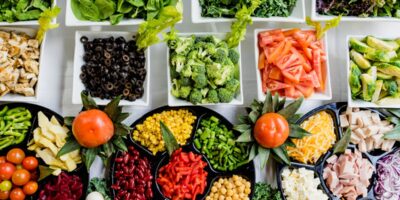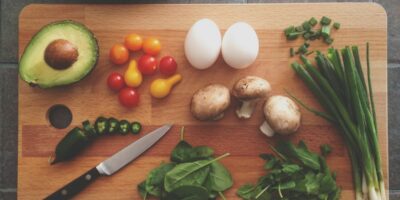Cooking tips have gotten complicated with all the food science YouTube videos and technique debates flying around. As someone who went from burning scrambled eggs to reliably making dinner my family asks for seconds of, I learned everything there is to know about the practical stuff that actually improves your cooking. Today, I will share it all with you.
I’m not going to talk about sous vide or molecular gastronomy. These are the simple, fundamental tips that changed my results in the kitchen almost immediately. Most of them I learned the hard way.
Heat Your Pan Before Anything Else
This was the single biggest improvement in my cooking. Put your empty pan on the burner and let it get hot for a minute or two before you add oil. Then let the oil get shimmery before adding food. I know it feels like wasting time, but rushing this step is why food sticks, steams instead of sears, and generally disappoints.
Quick test: flick a tiny drop of water onto the pan. If it sizzles and evaporates immediately, you’re ready. If it just sits there, keep waiting. I do this every single time now and the difference in my searing is night and day.
Pat Your Proteins Dry
This one felt weird to me at first. Why am I drying off chicken with paper towels? Because moisture on the surface of meat creates steam, and steam prevents browning. You want direct contact between hot pan and dry protein — that’s what creates that gorgeous golden-brown crust.
Probably should have led with this section, honestly. It’s the tip that transforms grey, sad-looking chicken into restaurant-quality golden pieces. Paper towels, pat until barely damp, then season and cook. Takes 30 seconds and makes everything better. Once you see the difference, you’ll never skip it.
Stop Crowding the Pan
I used to dump an entire package of chicken into one pan because I wanted to get cooking over with faster. The result? Steamed, pale, rubbery chicken. Turns out, when too much cold food hits a pan at once, the temperature plummets and everything releases moisture instead of browning.
Cook in batches if you have to. Leave space between pieces of meat. Yes, it takes a few extra minutes. But those minutes are the difference between food you want to eat and food you eat because you made it and feel obligated. I had to learn this lesson three or four times before it stuck, so don’t feel bad if it takes you a couple tries too.
Let Your Meat Rest
I know. You just cooked a beautiful steak and you want to cut into it immediately. I get it. But here’s what happens if you do: all those juices that you worked hard to keep inside come flooding out onto the cutting board. You end up with dry meat sitting in a puddle.
Five to ten minutes of resting for steaks. Longer for roasts. Tent it loosely with foil — the temperature actually continues rising during this time, and the juices redistribute throughout the meat. When you finally cut into it, the juices stay where they belong. That’s what makes a properly rested steak endearing to us home cooks — it tastes like you know what you’re doing, even if you just learned this trick yesterday.
Taste Everything, Constantly
Seasoning isn’t a one-time event. It happens throughout the cooking process. What tastes properly salted when it’s raw might be bland once it’s cooked. What seems fine at a simmer might need acid once it’s done. Keep a tasting spoon nearby and use it.
I taste my food at least three or four times while cooking. Start of cooking, middle, and right before serving, minimum. The final adjustment — that last pinch of salt, squeeze of lemon, or crack of pepper — is often what separates a good dish from a great one. It takes two seconds and costs nothing. Do it every time.
Invest in a Sharp Knife
A dull knife is more dangerous than a sharp one. Sounds counterintuitive, but a dull blade slips and mashes and requires you to force it through food. A sharp knife cuts cleanly with minimal pressure. More control, less effort, genuinely safer.
You don’t need a $300 Japanese knife. A decent chef’s knife in the $40-60 range, kept sharp, will outperform an expensive knife that’s never been maintained. Hone it on a steel before each use — it takes 15 seconds. Get it properly sharpened every few months. This one change made chopping vegetables go from a chore to something I actually sort of enjoy. Sort of.
Clean As You Go
Down time exists in every cooking session, even if it doesn’t feel like it at first. Water’s coming to a boil? Wash the cutting board. Sauce is simmering? Wipe down the counter. Chicken’s resting? Load the dishwasher.
I used to finish cooking and face a mountain of dirty dishes that killed any satisfaction from the meal I just made. Now I clean in the gaps, and by the time dinner hits the table, there’s almost nothing left to deal with. The kitchen’s mostly clean, the food’s hot, and I actually get to enjoy the meal instead of dreading what comes after. It’s a small habit that changed my entire relationship with cooking.



